
Credit constraints and the redistribution of housing wealth
Staff working papers set out research in progress by our staff, with the aim of encouraging comments and debate.
Staff Working Paper 1147 by B Tracey (BoE) & N van Horen (BoE) shows FTB home purchases rose sharply after 2013 when the deposit requirement was reduced from 10% to 5% by HTB. Gains were concentrated among FTBs unlikely to have relied on family support. 🔗 www.bankofengland.co.uk/working-pape...
28.10.2025 09:46 — 👍 3 🔁 1 💬 0 📌 0
Humbled to have received the biennial ‘Best Dissertation Award’ of the German Academy of Sociology at this year’s conference in Mainz! It was a pleasure to present a summary of my thesis. Grateful for all the support and guidance I received over the last years. #AkadSoz25 #sociology
13.10.2025 07:11 — 👍 31 🔁 2 💬 2 📌 1
A reminder that there is about 1 week left to apply for these 2 positions in Quantitative Social Science @sriucl.bsky.social!
Application deadline: 10 October.
Further details in the link below.
02.10.2025 09:15 — 👍 2 🔁 3 💬 0 📌 0

Are you a UCL Sociologist? Apply to join UCL Sociology Network's Coordinating Group. Contribute to the Network’s wide-ranging programme of activities and share news of important sociological developments tinyurl.com/2ut5dttz
22.09.2025 14:32 — 👍 1 🔁 3 💬 0 📌 0

Ozan Aksoy
Welcome to @aksoyundan.bsky.social, who has joined us as Associate Professor in Sociology! 🎉
His research covers religious behaviour, cooperation and trust 🤝
Game theory, statistical and computational methods are amongst his research tools 💻🎲
www.sociology.ox.ac.uk/people/ozan-...
19.09.2025 11:55 — 👍 23 🔁 5 💬 0 📌 1

Street soccer championship in The Hague, Netherlands, 2010.
A Dutch study explores a key barrier to social integration: strong in-group preferences. One hopeful exception: young people don’t have strong preferences for people of their own ethnicity when it comes to sports activities. In PNAS Nexus: academic.oup.com/pnasnexus/ar...
17.09.2025 17:05 — 👍 3 🔁 4 💬 0 📌 0
New paper, using conjoint experiments to study ingroup preferences across multiple settings (neighborhoods, civic orgs, sports clubs) and social dimensions (age, ethnicity, education). We also link people's choices in the experiments to the real-world contexts they are embedded in.
More info 👇
18.09.2025 09:52 — 👍 8 🔁 2 💬 0 📌 0

🚨 New pre-print with @sergioloiacono.bsky.social
We ran 3 large-scale experiments in 🇬🇧to investigate how perceived asylum-seeking legality, public preferences for refugee relocation, and inclusionary attitudes are shaped by symbolic and strategic boundaries
doi.org/10.31235/osf...
11.09.2025 09:32 — 👍 21 🔁 8 💬 2 📌 0
Excited and grateful to launch my ERC project #SOCIO-CLIMP 🌍🌤️
The project explores how #ClimateChange and #EnvironmentalHazards unequally affect different socio-demographic groups 🧑🤝🧑 across Europe — combining spatial climate data with demographic detail to uncover patterns of #ClimateInjustice.
04.09.2025 11:09 — 👍 104 🔁 13 💬 8 📌 0


Do people have less #Kids because of the #ClimateCrisis? 🌍👶
In our preprint, @katyaoivanova.bsky.social and I find that environmentalists are less likely to have kids in their 20s and 30s... But by their early 40s, the gap closes.
Maybe it's rather about #Postponement? 🕰️
🔗 doi.org/10.31235/osf...
01.09.2025 13:59 — 👍 43 🔁 11 💬 1 📌 0

UCL – University College London
UCL is consistently ranked as one of the top ten universities in the world (QS World University Rankings 2010-2022) and is No.2 in the UK for research power (Research Excellence Framework 2021).
Thrilled to have started a new chapter in my career at @sriucl.bsky.social & Quantitative Social Science (QSS) centre @ucl.ac.uk this week.
Absolutely love my supportive colleagues & the inspiring environment ❤️
We're hiring 2 new lecturers in QSS – come and join us ➡ www.ucl.ac.uk/work-at-ucl/...
03.09.2025 21:11 — 👍 12 🔁 3 💬 1 📌 0

Brittle bridges: ethnic segregation across and within civic organizations
Abstract. Civic organizations are often depicted as vehicles for social integration: Since they gather people around common interests and have relatively l
Brittle bridges: ethnic segregation across and within civic organizations
doi.org/10.1093/esr/...
Paper in @europeansocreview.bsky.social by @nuffieldcollege.bsky.social Postdoctoral Prize Research Fellow @kasimirdederichs.bsky.social and Associate Member @dingemanwiertz.bsky.social
22.08.2025 16:00 — 👍 3 🔁 2 💬 0 📌 0
We have 2 posts available in our Quantitative Social Science centre at @sriucl.bsky.social.
It is a wonderful place to work, with great colleagues, exciting degrees, and good promotion prospects. The posts are open to anyone working in the broad space covered by our centre.
Deadline + link 👇
02.09.2025 15:43 — 👍 5 🔁 4 💬 0 📌 1
Fortunately, what we do have is a very reasonable promotion framework, so there are good mobility prospects across levels.
01.09.2025 20:44 — 👍 3 🔁 0 💬 0 📌 1
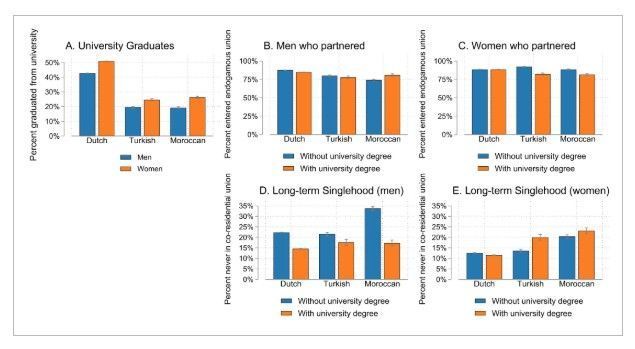
Who remains single? Educational gradients in long-term singlehood across ethnic groups
doi.org/10.1111/jomf...
Paper in @jmfncfr.bsky.social by @nuffieldcollege.bsky.social postdoc @kasimirdederichs.bsky.social Associate Member Evelina Akimova and Fellow Nan Dirk de Graaf
06.08.2025 13:00 — 👍 4 🔁 2 💬 0 📌 0
Shout out to my @sriucl.bsky.social colleague @ruettenauer.bsky.social who's doing an amazing job at bringing methods to the people
His recent output includes two handbook chapters (spatial + panel data), a DiD paper, and a treasure trove of teaching materials online: ruettenauer.github.io
25.07.2025 07:40 — 👍 25 🔁 2 💬 2 📌 0
Real academic talent doesn’t express itself in grants or publications but UCL admin rights. Btw, any chance I can have yours now? 🙏
18.07.2025 10:14 — 👍 3 🔁 0 💬 1 📌 0

Is there really a religious revival in England? Why I’m sceptical of a new report
In Anglican and Catholic churches, average weekly attendance is down about 20% from pre-pandemic levels.
Is there a religious revival in England?
@sriucl.bsky.social's David Voas raises questions about a recent report claiming that Gen Z is leading a rise in church attendance after decades of religious decline. It appears the devil is in the data.
Read more here: tinyurl.com/2zptnnw3
25.06.2025 09:28 — 👍 4 🔁 6 💬 0 📌 0
🧵1/8
In our new #OA article, we studied the drivers of ethnic school segregation.
Research on segregation often points to parental preferences, but what if it's not just about what parents want, but also what options they actually have?
🔗 doi.org/10.1093/esr/jcaf027
09.06.2025 12:12 — 👍 38 🔁 17 💬 3 📌 0
Thank you Per! 🥸
14.06.2025 19:53 — 👍 1 🔁 0 💬 0 📌 0
Hurray!
14.06.2025 07:55 — 👍 15 🔁 2 💬 1 📌 0

Very exited to share the amazing 🚀line-up for our QSS and CLS Seminar series @sriucl.bsky.social🎓
Weekly talks on #SocialScience topics like #Inequality, #Protests, #Migration, #EducationalMobility, #Ethnicity, and #Eugenics 📊
Wednesdays, 1–2pm (hybrid). Register: forms.microsoft.com/e/fHEP73Jdmz
24.04.2025 08:30 — 👍 30 🔁 5 💬 2 📌 0
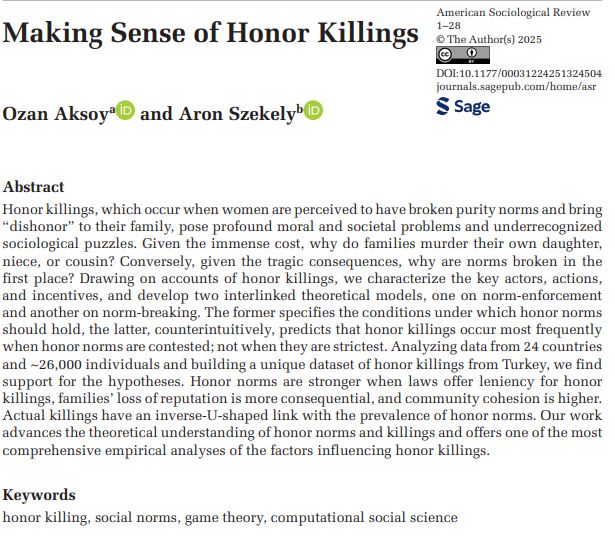
Details of the publication with abstract which reads: Honor killings, which occur when women are perceived to have broken purity norms and bring “dishonor” to their family, pose profound moral and societal problems and underrecognized sociological puzzles. Given the immense cost, why do families murder their own daughter,
niece, or cousin? Conversely, given the tragic consequences, why are norms broken in the first place? Drawing on accounts of honor killings, we characterize the key actors, actions, and incentives, and develop two interlinked theoretical models, one on norm-enforcement
and another on norm-breaking. The former specifies the conditions under which honor norms should hold, the latter, counterintuitively, predicts that honor killings occur most frequently when honor norms are contested; not when they are strictest. Analyzing data from 24 countries and ~26,000 individuals and building a unique dataset of honor killings from Turkey, we find support for the hypotheses. Honor norms are stronger when laws offer leniency for honor killings, families’ loss of reputation is more consequential, and community cohesion is higher. Actual killings have an inverse-U-shaped link with the prevalence of honor norms. Our work advances the theoretical understanding of honor norms and killings and offers one of the most
comprehensive empirical analyses of the factors influencing honor killings.
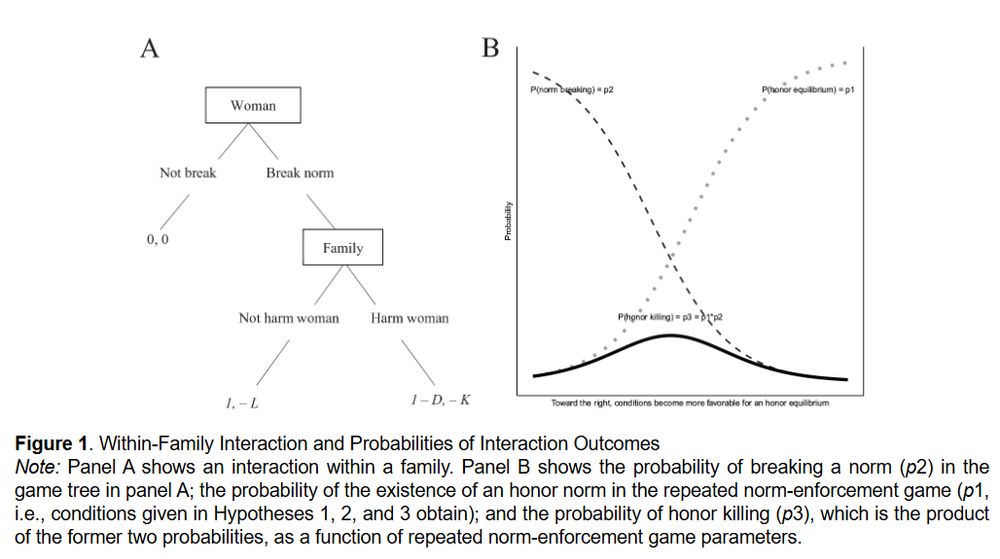
Figure 1 from the paper. Within-Family Interaction and Probabilities of Interaction Outcomes
Note: Panel A shows an interaction within a family. Panel B shows the probability of breaking a norm (p2) in the game tree in panel A; the probability of the existence of an honor norm in the repeated norm-enforcement game (p1, i.e., conditions given in Hypotheses 1, 2, and 3 obtain); and the probability of honor killing (p3), which is the product of the former two probabilities, as a function of repeated norm-enforcement game parameters.
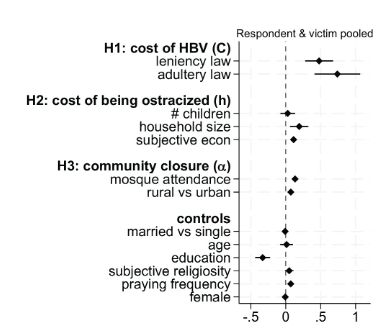
Figure 3 from the paper. Support for Honor Killings; Coefficients from Multilevel Regressions with Random Intercepts for Countries
Data source: PEW (2013) World Muslims Survey.
Note: N (response) = 26,458. N (country) = 24. Countries that adopted laws that allow leniency for honor-based violence: Algeria, Egypt, Iraq, Jordan, Lebanon, Morocco, Niger, Palestinian Territories. Countries that have adultery laws: Afghanistan, Pakistan.
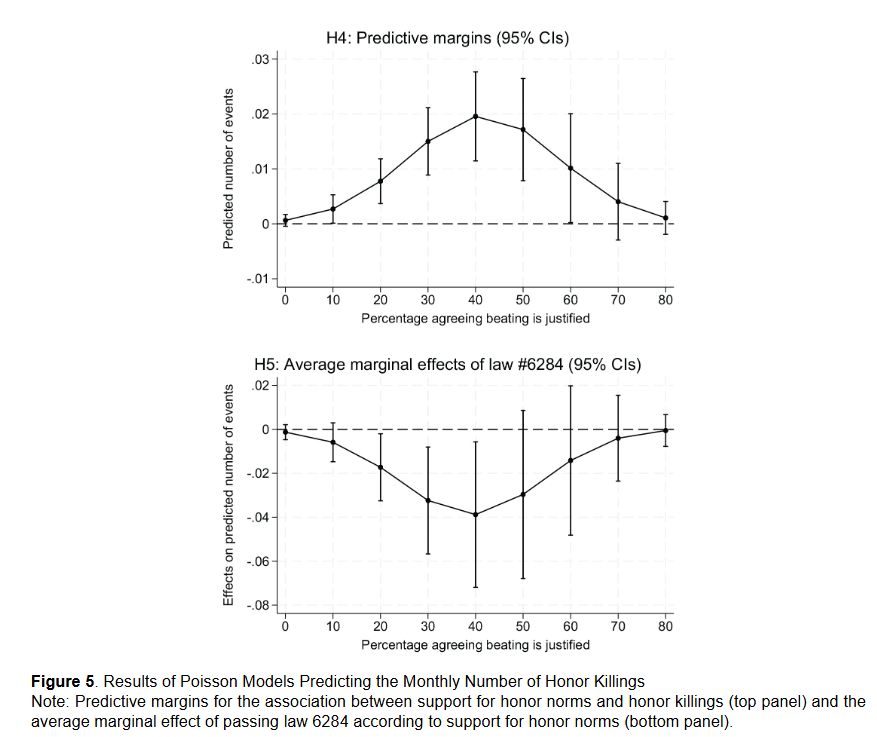
Figure 5 from the paper. Results of Poisson Models Predicting the Monthly Number of Honor Killings
Note: Predictive margins for the association between support for honor norms and honor killings (top panel) and the average marginal effect of passing law 6284 according to support for honor norms (bottom panel).
📢 My paper w Aron Szekely on honour-based violence is published online (Open Access): journals.sagepub.com/doi/epub/10....
We explain this puzzling phenomenon applying game-theory and testing it using large-scale data on norms and actual femicides.
@sriucl.bsky.social @uclsociology.bsky.social
12.04.2025 07:13 — 👍 58 🔁 22 💬 3 📌 2

Evidence for the welfare magnet hypothesis? A global examination using exponential random graph models
Abstract. The welfare magnet hypothesis states that welfare generosity in destination countries is a migration pull factor. However, supporting evidence is
Happy to share that this article is now published (after a long time)! It’s often claimed that welfare generosity attracts immigration. But looking at flows between 160 countries, I found little support. Other factors like GDP or democracy matter more. academic.oup.com/sf/advance-a...
09.04.2025 07:18 — 👍 33 🔁 25 💬 0 📌 2
🚨New article🔥
🗳️ What helped close the turnout gender gap after female enfranchisement?
▶️ We study a 1933 lottery that assigned newly enfranchised women as poll officers and its impact on their voting in 1936.
One of my favourite projects! 🎉 @upf.edu @politiquesupf.bsky.social
25.03.2025 06:24 — 👍 30 🔁 6 💬 1 📌 0
The UCL Social Research Institute @sriucl.bsky.social is looking for a Lecturer (Assistant Professor) in Sociology, to support the institute's strong research profile in sociology as well as the delivery of its new MSc in Sociology. Application deadline: 17 April. Further details in the link below.
21.03.2025 16:02 — 👍 13 🔁 8 💬 1 📌 0

Does volunteering reduce antidepressant use among older adults? Longitudinal register-based evidence from Denmark
Antidepressant use among older adults has surged in recent years. This is concerning since antidepressants have serious side effects and limited effic…
Can participation in volunteer activities reduce older people’s reliance on antidepressants? In a new study with HP Qvist & @jeevitha-q.bsky.social, we explore this, merging longitudinal survey data with register data on antidepressant prescriptions.
Link: tinyurl.com/3brw3fy3 @sriucl.bsky.social
20.03.2025 13:58 — 👍 17 🔁 6 💬 0 📌 2
🚨Three more days to apply!🚨
Two full time PhD positions on economic inequalities, broadly defined 💸💰📈🎓
E13, 100%, 4+1 years in Heidelberg 🏰
adb.zuv.uni-heidelberg.de/info/INFO_FD...
25.02.2025 10:41 — 👍 16 🔁 15 💬 0 📌 2

Invisible secularity: American theism beyond belief
Abstract. It is often asserted that religion is changing rather than declining and that the usual indicators give a misleading impression of growing secula
New research by @sriucl.bsky.social's David Voas in @sfjournal.bsky.social provides novel evidence on what has been happening to religion in the U.S. Contrary to claims that religion is changing rather than declining, David shows that secularization has so far been understated: shorturl.at/I6FD9
09.02.2025 21:21 — 👍 4 🔁 3 💬 1 📌 0
Sociologist of social stratification and immigrant Integration @ WZB Berlin
Associate Professor of Sociology at the University of Minnesota
My blog: https://asocial.substack.com/
Studies Perceptions of Discrimination and the Integration Paradox in European Societies | PhD Candidate | Utrecht University | she/her | https://chlolv.github.io/chloelavest/
Development Economist in Stockholm. Past: Oxford Econ, UCL and Delhi Univ. Mostly posts about Econ, India, education, miscellanea. #econsky
Website: www.abhijeetsingh.dev
research fellow @clscohorts.bsky.social
epidemiology, causal inference, methods
postdoctoral prize research fellow, nuffield college, oxford www.saidhassan.dk
What has place to do with social inequality? PostDoc in Sociology @Institute for Employment Research (IAB) investigating this link in using geodata and CSS
https://sites.google.com/view/kerstin-ostermann/start
Professor soc/demog Sociology Stockholm University, SUDA Sthlm, and University of Colorado Population Center. Health lifestyles, early life, parenting, LGBQ disparities, reproductive health. Own views. She/her.
Professor of Sociology, European University Institute | Sociologist interested in bias, stereotyping and discrimination.
Torontonian. Economist. Sometimes professorial, (ex?)airplane dweller, rowing enthusiast, whisky lover. Account is mostly whisky, dogs and some econ. 🇨🇦🇧🇷🇮🇹 danielascur.com
European Research Council, set up by the EU, funds top researchers of any nationality, helping them pursue great ideas at the frontiers of knowledge. #HorizonEU
Prof. of Sociology @ UChicago
https://stonecenter.uchicago.edu/people/geoff-wodtke/
Analytical sociologist and demographer studying residential mobility, segregation, and inequality at Linköping University's Institute for Analytical Sociology.
Postdoc @eui-eu.bsky.social (& @roamaastricht.bsky.social) | PhD from @uva.nl @aissr.bsky.social | sociology of education, social stratification, school choice, social networks
eui.eu/people?id=dieuwke-zwier
Criminology, public policy, research and experiments
Open archive of social science. Free. Academy owned. Posts by director Philip N. Cohen. Say it: so-SHAR-kive (soʊʃɑrkaɪv). Website: socarxiv.org. New papers post at: https://bsky.app/profile/socarxivbot.bsky.social
Developmental psychologist. Postdoc at CEPEO, UCL. 1st gen. Researches daily cognition, methods + gender. 🇮🇪 🏴 #GoBlue
sociologist, Postdoc @goetheuni.bsky.social. Ph.D from @humboldtuni.bsky.social
interested in: educational decisions & stratification, neighborhoods, segregation, spatial data/mapping
https://tinygu.de/RobertVief-CV-en
Professor of Economics, University of Munich
Director, ifo Center for the Economics of Education
https://sites.google.com/view/woessmann-e


















